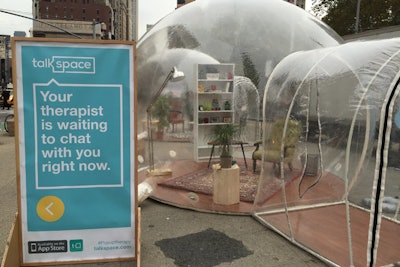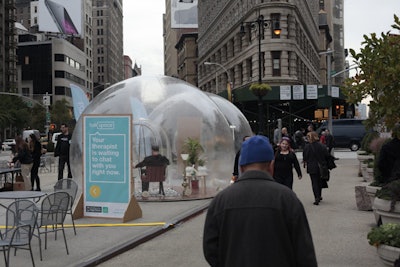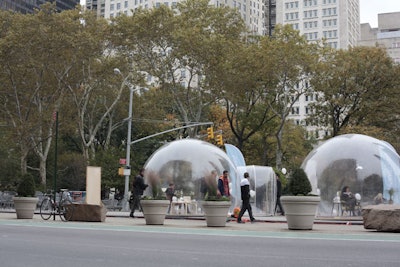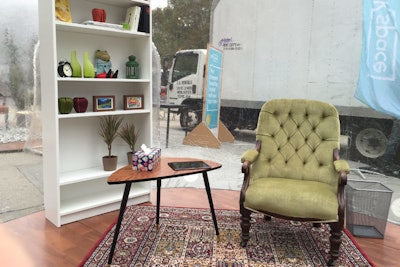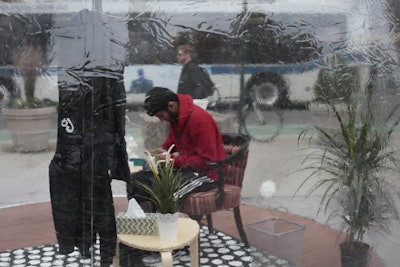Talkspace launched in 2012, but in the past two weeks the mobile app has garnered more buzz from traditional and social media than it has since its inception. The cause of all the attention: a pop-up activation in the middle of New York’s Flatiron district that was both eye-catching and directly linked to the brand’s core mission. Talkspace is an app that connects users with licensed therapists for real-time therapy via chat at a minimum cost of $25 a week. Founders Roni and Oren Frank created the app to reduce the stigma associated with mental illnesses and to provide an affordable and convenient option for treatment.
To illustrate Talkspace’s goal to bring transparency and accessibility to mental healthcare, designer Alon Seifert of Not Grey created an installation dubbed “Pop-Up Therapy” November 5 and 6 at a busy New York intersection. Inside two clear bubbles, each 16 feet in diameter, Seifert staged what looked like traditional therapists' offices, using wood floors, area rugs, armchairs, light fixtures, greenery, and side tables complete with boxes of tissues. Each dome also included an iPad connected to the Talkspace app, and passersby were invited to step inside for a complimentary chat session with a therapist.
“In the app world, there’s very fierce competition on how to break out and be vocal and become famous. We felt that we needed to do something quite radical for the category to get noticed. And especially to get noticed not by geeks and all the tech sites but instead to appeal to everyday people who don’t read Engadget and Gizmodo,” Seifert says. “So we wanted to make it live in the real world and create an offline experience to this online app.”
More than 50 people went into the bubbles during the two-day event, and—more importantly—the activation generated more than 78 million impressions through traditional media coverage and an additional 15 million on social media with the hashtag #PopUpTherapy.
“The reaction has been so overwhelming,” Seifert says. “And this was not expensive. It was very guerrilla.” He says they now plan to take the pop-up therapy event to additional cities.
Papush, an event production firm based in Israel, also helped to produce the activation.
